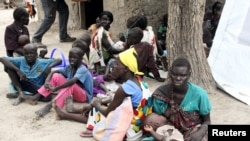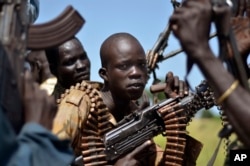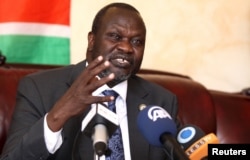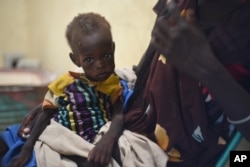South Sudan’s two-year conflict has killed thousands of people, displaced millions and cost the United States over $1 billion in humanitarian assistance.
Ambassador Princeton Lyman, a senior adviser at the United States Institute of Peace and the former U.S. special envoy to Sudan and South Sudan, says a lot can be learned from the ongoing conflict.
For one, he said, “Never idolize a rebellion and assume that the people who are fighting against an injustice will not commit an injustice of their own.”
Lyman ended his tour as the special envoy in March 2013, just nine months before the recent conflict erupted in the state capital. What South Sudan lacked at that time, he said, was a strong central government.
“I think that what we saw in South Sudan was the weakness of civil institutions — a weakness of the political party, unable to deal with and resolve the rivalry of President [Salva] Kiir and his vice president [Riek Machar],” he said.
U.N. report
A recent U.N. report echoes Lyman’s views, stating that the conflict has further weakened fragile state institutions and diminished the government’s ability to protect civilians and provide basic services.
“The historically weak administration of justice has deteriorated, with an increase in the number of arbitrary arrests and detentions, prolonged pre-trial detentions and incommunicado detentions without charge,” the report says.
Countless human rights violations directly related to the conflict have occurred, according to the report, which pins responsibility on Kiir and rebel leader Machar.
Innocent civilians have been the victims of indiscriminate attacks, forced recruitment and extensive destruction of property, according to the U.N.
“The weakness of the parliament in being able to stand up to the usurpation of power by the president and the failure of the army to integrate the various militias, which split apart almost immediately, between them have created some horrific human rights violations,” said Lyman in a telephone interview.
Some progress has been made toward implementing a peace accord signed in August and establishing a transitional government of national unity.
Lyman said the president's decree giving Machar the newly created post of first vice president was a major step toward resolving the conflict.
Troop deployment
But Machar is waiting for 1,400 of his troops to be settled in the capital, Juba, before making his return to the city. The rebel leader, who lives in neighboring Ethiopia, says deployment of those troops is a condition for his return and has called on the international community to assist in the transport of those troops.
Once established, the transitional government will operate without a binding constitution, a move that has gained criticism.
“It would have been very difficult for them to agree on a constitution that would guide the transitional government,” said Lyman. “It would have been a nice thing to have done, but I can’t imagine they would have been able to do it.”
Lyman agrees that a permanent constitution is critical in addressing some of the fundamental institutional weaknesses that led to the war.
“But that process should involve much more than the leaders of this transitional government," said Lyman. “It should be a much more broad-based process, and will probably take some time."
The U.N. reported a sharp rise in food insecurity across South Sudan, saying a quarter of the population is currently facing acute food and nutrition insecurity.
The U.N. has urged both parties to quickly establish the transitional government, stating that its “prompt implementation” is necessary for ending the food crisis.









